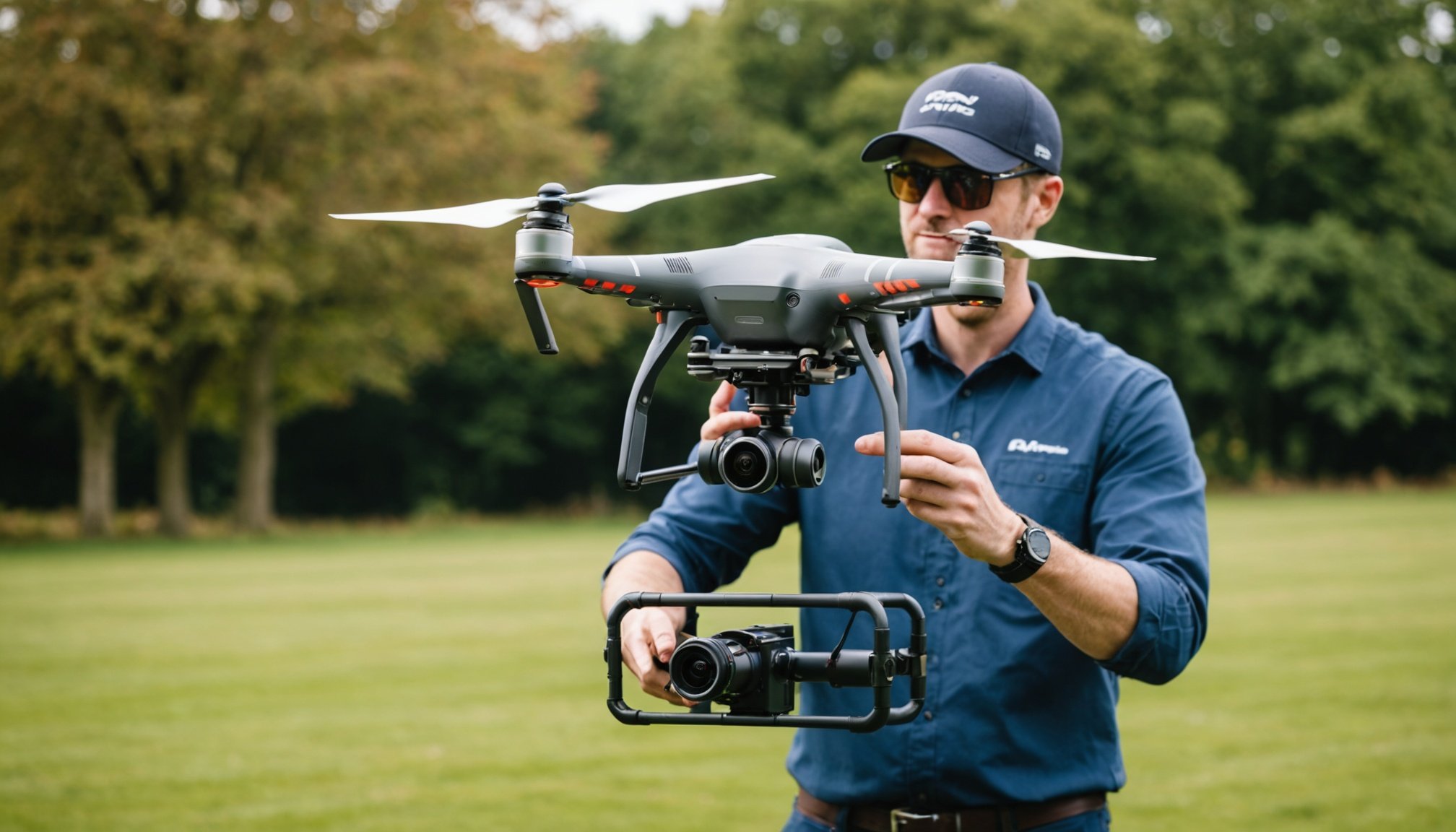Overview of 2023 Drone Regulations for UK Hobbyists
In 2023, new drone regulations were introduced in the UK, significantly impacting how hobbyists use their drones. These updated UK drone laws focus on safety and privacy, ensuring that all drone activities are conducted responsibly. For hobbyists, understanding these regulations is crucial to avoid penalties and enjoy a seamless flying experience.
The UK Civil Aviation Authority (CAA) plays a pivotal role in regulating drone use, offering guidance to both commercial operators and hobbyists. They have set specific guidelines, including maximum altitude restrictions and mandatory registration for drones weighing above 250 grams. This ensures that drones do not interfere with commercial air traffic or pose risks to people and property.
Avez-vous vu cela : Exploring the Latest 2023 Requirements for UK Business Insurance: What You Need to Know
Hobbyist drone usage must comply with airspace restrictions, such as avoiding no-fly zones around airports and military bases. Also, operators are required to maintain visual line-of-sight with their drones at all times. These measures highlight the importance of understanding and adhering to the new regulations for a safe and legal drone flying experience. By familiarising themselves with these rules, hobbyists can enjoy their pastime while respecting the safety and privacy of others.
Key Changes from Previous Regulations
Navigating the changes in drone laws can often feel daunting. However, understanding these updates is crucial for compliance and safe flying. This section explains the significant shifts from past regulations concerning drone registration, flight restrictions, and safety and privacy protocols.
Cela peut vous intéresser : Farmingdale observer: essential highlights for home and garden
Registration Requirements
Drone owners now face new registration mandates. Compared to prior years, there is a streamlined process, focusing on ease and accessibility. Owners must register drones weighing between 250 grams and 25 kilograms. Previously, only heavier models necessitated registration. This shift ensures accountability from first-time hobbyists to seasoned flyers. Furthermore, the online registration platform has been enhanced for user experience, allowing quicker processing and issuing of unique identification numbers for drones.
Flight Restrictions
Recent regulatory updates also address flight restrictions. Recreational pilots must adhere to new altitude limitations, with maximum heights reduced to mitigate airspace congestion. Flying near airports, military zones, and national parks remains prohibited. A more comprehensive map of no-fly zones is now available, aimed at helping pilots easily identify restricted areas. These regulations balance pilot freedom with national safety interests.
Safety and Privacy Protocols
Safety measures have been reinforced. Operators are required to undertake courses covering best practices and preventable incidents. Moreover, privacy protocols are more stringent, addressing concerns over surveillance and data collection. Operators must avoid capturing images on private premises without explicit consent, ensuring respect for individual privacy rights. These updates aim to foster responsible drone usage while protecting community safety and privacy.
Implications for Hobbyists
Understanding the impact on hobbyists of new drone regulations is pivotal. These changes can significantly affect recreational drone activities by introducing potential limitations on the types of drones and scenarios permitted. For instance, some regulations might restrict flying heights, areas, or even require specific qualifications to operate particular drone models.
Regulation Changes
New rules could pose challenges by narrowing the scope of what hobbyists can enjoy today. The importance of understanding these implications is substantial for maintaining compliance and ensuring a smooth recreational experience. Knowing where and when you can operate drones can prevent legal issues and fines.
Considerations for Usage
Drone enthusiasts should stay informed about drone usage implications and reflect on how these might alter their usual practices. Understanding both geographical and technical restrictions allows hobbyists to adjust accordingly. For example:
- Legal flying zones
- Drone weight and size limitations
- Mandatory usage permissions
By adapting to these considerations, hobbyists can continue enjoying their activities without unforeseen interruptions. Engaging with community discussions can further deepen understanding and foster better compliance. Ultimately, staying proactive about these implications ensures that the vibrant hobbyist community remains thriving and sustainable.
Practical Guidance for Compliance
Navigating the world of drones requires not just enthusiasm but also an understanding of the necessary drone compliance tips. It’s vital to follow regulations to ensure a safe and enjoyable flying experience.
Steps to Register Your Drone
Registering a drone is straightforward when you know the steps. Start by visiting the official aviation authority’s website and completing the registration form, which typically requires details like your drone model and serial number. A common mistake is overlooking the correct category — ensure you’re registering under the correct classification (recreational or commercial) to avoid delays.
Understanding No Fly Zones
When it comes to no-fly zones, technology is your friend. Use mobile apps and online maps designed to highlight restricted areas. Before taking off, always check the airspace for any temporary restrictions or permanent no-fly zones to remain compliant.
Best Practices for Safe Flying
Adhering to best practices is key to safe and compliant drone operation. Maintain line-of-sight with your drone, avoid flying over people, and always respect privacy. Resources such as online courses or drone safety workshops provide valuable insights into safe and compliant flying, ensuring both your and others’ security in the sky.
Consequences of Non-Compliance
Failing to adhere to drone regulations can lead to significant penalties. These include both financial fines and potential legal actions. For first-time offenders, penalties often include warnings or modest fines. However, repeat offenders face harsher repercussions, such as increased fines or, in severe cases, criminal charges.
Legal repercussions are more severe for recurrent offenders. Persistent non-compliance may result in license suspensions, confiscation of equipment, or even jail time in extreme cases. Authorities take these measures to ensure public safety and the responsible use of drones.
Historically, enforcement actions against hobbyists illustrate the seriousness of these penalties. For instance, hobbyists have faced fines for flying drones in restricted airspace or failing to register their equipment. In some cases, individuals have had their drones confiscated or faced additional legal implications. These examples underscore the importance of following regulations. Compliance not only avoids penalties but also promotes safe and responsible drone use.
Additional Resources and Support
Exploring the world of drones is exciting but can also feel a bit overwhelming without the proper guidance and support. Luckily, the UK drone community provides ample resources and support for both novices and seasoned enthusiasts.
Government and Regulatory Websites
To operate drones safely and legally, the UK government offers several key websites overflowing with valuable drone resources. These websites provide official guidance, regular updates on regulations, and information on acquiring necessary permissions. Tapping into these resources ensures you’re always flying within the legal framework.
Community Support Networks
One of the significant benefits of joining the UK drone community is the access to its enthusiast groups and forums. These platforms foster shared knowledge, offer troubleshooting help, and connect you with like-minded individuals. Whether you’re curious about the latest technologies or need advice, community support networks have got you covered.
Educational Programs and Training
Continuous learning is paramount in the constantly evolving field of drones. Various educational programs offer training and certification to hone your skills. These drone resources ensure operators are proficient and up-to-date with the latest safety protocols. Adjusting to new challenges in drone operation becomes more manageable with proper education and support.











